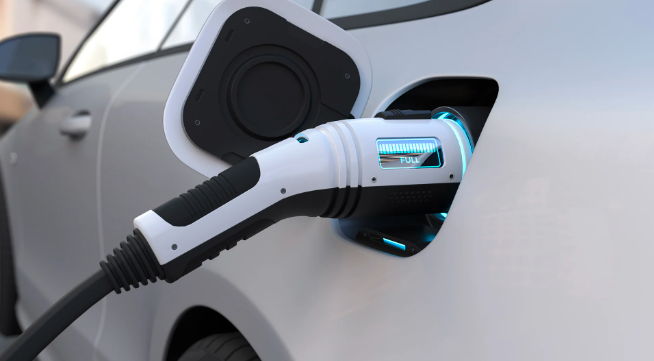exploring the evolution and impact of ev charge solutions

the electric vehicle (ev) revolution is gaining unstoppable momentum worldwide, and central to this movement are the innovative ev charger solutions that power these vehicles. as more consumers and businesses embrace electric mobility, the demand for reliable, efficient, and accessible charging infrastructure has never been greater. this article dives deep into the world of ev charge solutions, examining their types, benefits, challenges, and future trends shaping sustainable transportation.
understanding ev charge solutions
simply put, ev charge solutions encompass the range of products, technologies, and services designed to recharge electric vehicles safely and effectively. unlike conventional vehicles that rely on gasoline or diesel fuel, evs run on batteries that need regular electrical replenishment. the availability and quality of charging options are crucial for enhancing user convenience and accelerating ev adoption.
these solutions cover various settings, including residential homes, commercial spaces, public parking, and highway rest stops, tailored to meet diverse charging needs.
key categories of ev charge solutions
the landscape of ev charge solutions is varied, but primarily they fall into three categories based on power delivery and charging speed:
- level 1 charging: the slowest form, level 1 uses standard household outlets (typically 120 volts) to charge vehicles. while cost-effective and simple, it can take over 12 hours for a full charge, making it suitable mainly for plug-in hybrids or users with low daily mileage.
- level 2 charging: offering a faster alternative, level 2 chargers operate at 240 volts and can recharge an ev fully in about 4 to 8 hours. these chargers are popular for home use, workplaces, and public locations, providing a balance between speed and cost.
- dc fast charging (level 3): the fastest option, dc fast chargers deliver direct current at high voltages, enabling ev batteries to charge up to 80% in under an hour. these stations are essential for long-distance travel and are increasingly found along highways and urban hubs.
innovative technologies enhancing ev charge solutions
today’s ev charge solutions integrate advanced technologies that improve user experience, efficiency, and sustainability:
- smart charging systems: connected chargers that communicate with apps and networks enable scheduling, remote monitoring, and dynamic energy management. users can optimize charging during off-peak hours, reducing costs and grid stress.
- wireless charging: although still emerging, wireless or inductive charging allows evs to recharge without plugging in physically, offering unparalleled convenience in homes and public spaces.
- renewable energy integration: many ev charge solutions now pair with solar or wind energy systems, delivering clean power and reducing carbon footprints.
- vehicle-to-grid (v2g) technology: this innovative feature allows evs to send stored energy back to the grid when needed, helping balance supply and demand while providing potential financial returns to vehicle owners.
benefits of adopting ev charge solutions
embracing robust ev charge solutions brings numerous advantages for individuals, businesses, and communities:
- environmental impact: widespread use of evs powered by clean electricity drastically lowers greenhouse gas emissions and air pollution.
- convenience: having accessible and fast charging options eliminates range anxiety and makes ev ownership more attractive.
- economic savings: electric charging typically costs less than gasoline refueling, and smart chargers further cut electricity bills through optimized scheduling.
- supporting grid stability: smart and v2g-enabled chargers help utilities manage energy demand efficiently.
- business opportunities: the growing market for ev charge solutions spurs innovation and creates jobs across manufacturing, installation, and maintenance sectors.
See also: Exploring the rise of whisky hk: how e-commerce is reshaping hong kong’s whisky scene
challenges in deploying ev charge solutions
while the progress in ev charge solutions is promising, several challenges need addressing:
- infrastructure gaps: rural and underserved areas often lack sufficient charging facilities, slowing adoption rates.
- high upfront costs: installation of fast chargers and associated grid upgrades require substantial investment.
- grid limitations: as more evs charge simultaneously, electricity networks must evolve to handle increased loads without outages.
- compatibility issues: differing charging standards and connectors can confuse users and complicate infrastructure planning.
- user experience hurdles: inconsistent payment systems, maintenance issues, and charger availability can frustrate drivers.
how to choose the right ev charge solutions
selecting the appropriate ev charge solutions depends on various factors:
- usage frequency and distance: daily commuters might find level 2 chargers sufficient, whereas long-haul drivers benefit from fast charging options.
- location: residential, commercial, and public environments require different setups tailored to user flow and convenience.
- vehicle compatibility: ensuring the charger supports the specific ev model and connector type is vital.
- budget and scalability: balancing cost with the potential for future upgrades or expansions is important.
- technological needs: smart features, app integration, and renewable compatibility enhance value and user satisfaction.
role of stakeholders in advancing ev charge solutions
governments, private enterprises, and communities all play pivotal roles in expanding ev charge solutions:
- policy and incentives: subsidies, tax breaks, and regulations encourage infrastructure investments and consumer adoption.
- industry innovation: manufacturers and technology providers develop better chargers, faster speeds, and seamless user interfaces.
- utilities cooperation: energy providers optimize grid management and incorporate renewable sources.
- public engagement: education and awareness campaigns help demystify ev charging and promote behavioral changes.
conclusion
ev charge solutions are the backbone of the ongoing electric vehicle transformation. by providing diverse, efficient, and intelligent ways to recharge, these solutions enable users to embrace clean mobility with confidence. although challenges remain in infrastructure development, cost, and grid management, continuous innovation and cooperation among stakeholders promise a future where electric driving is effortless, affordable, and eco-friendly.
investing in the right ev charge solutions today will pave the way for a sustainable transportation ecosystem tomorrow, benefiting individuals, businesses, and the planet alike.







